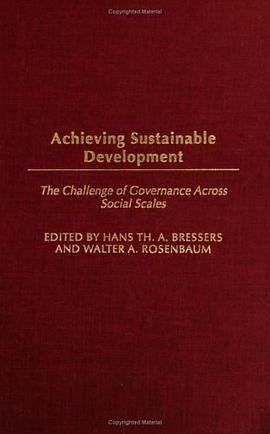

具體描述
Bressers, Rosenbaum, and their contributors analyze what, until recently, has been among the least examined issues implicit in the growing global discourse about sustainable development: the creation of institutions and processes for effective governance of sustainability policies. The creation and endurance of governance institutions capable of implementing sustainability policies is, in fact, fundamental for any viable conception of sustainable development. The analyses focus not only on how societies can organize, but on how they do organize to overcome such daunting obstacles in the Netherlands, the Northwest United States, Costa Rica, Madagascar, Senegal, and the European Union. The writers focus particularly upon the special problem embedded in the sustainability paradigm, that of organizing governance across scales--that is to say, across and between geographic, political, ecological, or other social levels in a sustainable regime. In recent years the scale problem has emerged as a major and enlarging concern, as international efforts proliferate to implement various sorts of sustainability policies. The analyses focus not only on how societies can organize, but on how they do organize to overcome such daunting obstacles. The analyses place considerable emphasis upon the history and lessons to be learned from ongoing efforts to achieve such governance in several diverse international settings including the Netherlands, the Northwest United States, Costa Rica, Madagascar, Senegal, and the European Union.
著者簡介
圖書目錄
讀後感
評分
評分
評分
評分
用戶評價
相關圖書
本站所有內容均為互聯網搜索引擎提供的公開搜索信息,本站不存儲任何數據與內容,任何內容與數據均與本站無關,如有需要請聯繫相關搜索引擎包括但不限於百度,google,bing,sogou 等
© 2025 book.quotespace.org All Rights Reserved. 小美書屋 版权所有




















